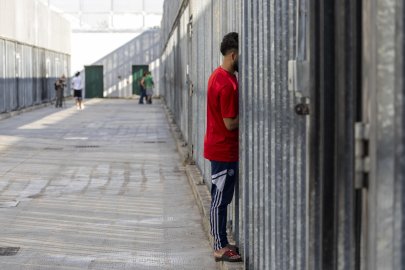Italy’s Constitutional Court Blasts Government on CPR Policies
The ongoing debate about immigration policies in Italy has taken a significant turn as the Constitutional Court has criticized the government’s approach to the CPR (Centres for Rapid Identification). This reaction reflects a growing concern over human rights and legal compliance within immigration processes, which have become a focal point for many activists and organizations.
Understanding the Context of CPR Policies
The Italian government has implemented various immigration policies aimed at controlling the influx of migrants. However, these measures have raised questions about their alignment with fundamental rights and protections guaranteed by the Italian Constitution. The Constitutional Court has pointed out that the current framework surrounding the CPRs lacks clarity and fails to uphold the principles of dignity and respect for individuals seeking asylum.
- Human Rights Concerns: The court has emphasized the need for immigration policies that do not compromise the rights of migrants and asylum seekers.
- Legal Compliance: There is a pressing need for government policies to adhere to both national and international legal standards regarding immigration.
- Transparency and Accountability: The court has called for greater transparency in the management of CPRs to ensure accountability in how migrants are treated.
The Role of Italy’s Constitutional Court
The Constitutional Court serves as a guardian of the Italian Constitution, ensuring that laws and policies enacted by the government align with constitutional principles. In its recent ruling, the court has highlighted several key issues regarding the government’s handling of CPRs:
- Inadequate Facilities: The conditions within CPRs have been criticized for not meeting basic human needs, leading to inhumane treatment of detainees.
- Lack of Legal Representation: Many migrants enter the CPRs without access to legal support, which is crucial for navigating the asylum process.
- Expedited Processes: The court has questioned the expedited processes for immigration, suggesting that they may not allow sufficient time for proper examination of cases.
Impact on Immigration Policy Reform
As the government faces mounting pressure from the Constitutional Court, there is potential for significant reform in Italy’s immigration policies. The criticism serves as a wake-up call for policymakers to reconsider their approach to immigration and ensure that it aligns with human rights standards.
- Potential Legislative Changes: The court’s ruling may prompt the government to introduce new legislation that better protects the rights of migrants.
- Public Response: Activists and advocacy groups are likely to intensify their efforts to push for reforms in the immigration system.
- EU Implications: Italy’s approach to immigration policies could influence broader discussions within the European Union regarding migration and asylum.
Conclusion
The recent criticism from Italy’s Constitutional Court regarding CPR policies highlights the urgent need for reform in the country’s immigration system. As the government grapples with the court’s findings, there is hope that Italy can move towards a more humane and legally compliant approach to immigration that respects the dignity and rights of all individuals.
The evolving landscape of immigration law in Italy reflects a broader movement across Europe, where countries are increasingly scrutinized for their treatment of migrants. As we continue to monitor the situation, it is crucial to stay informed about developments in immigration policy and human rights issues, both in Italy and globally.
In the context of immigration news, the importance of holding governments accountable for their actions cannot be overstated. The Constitutional Court’s ruling serves as a reminder that immigration policies should prioritize the well-being of individuals, ensuring that dignity and respect remain at the forefront of any reforms.










